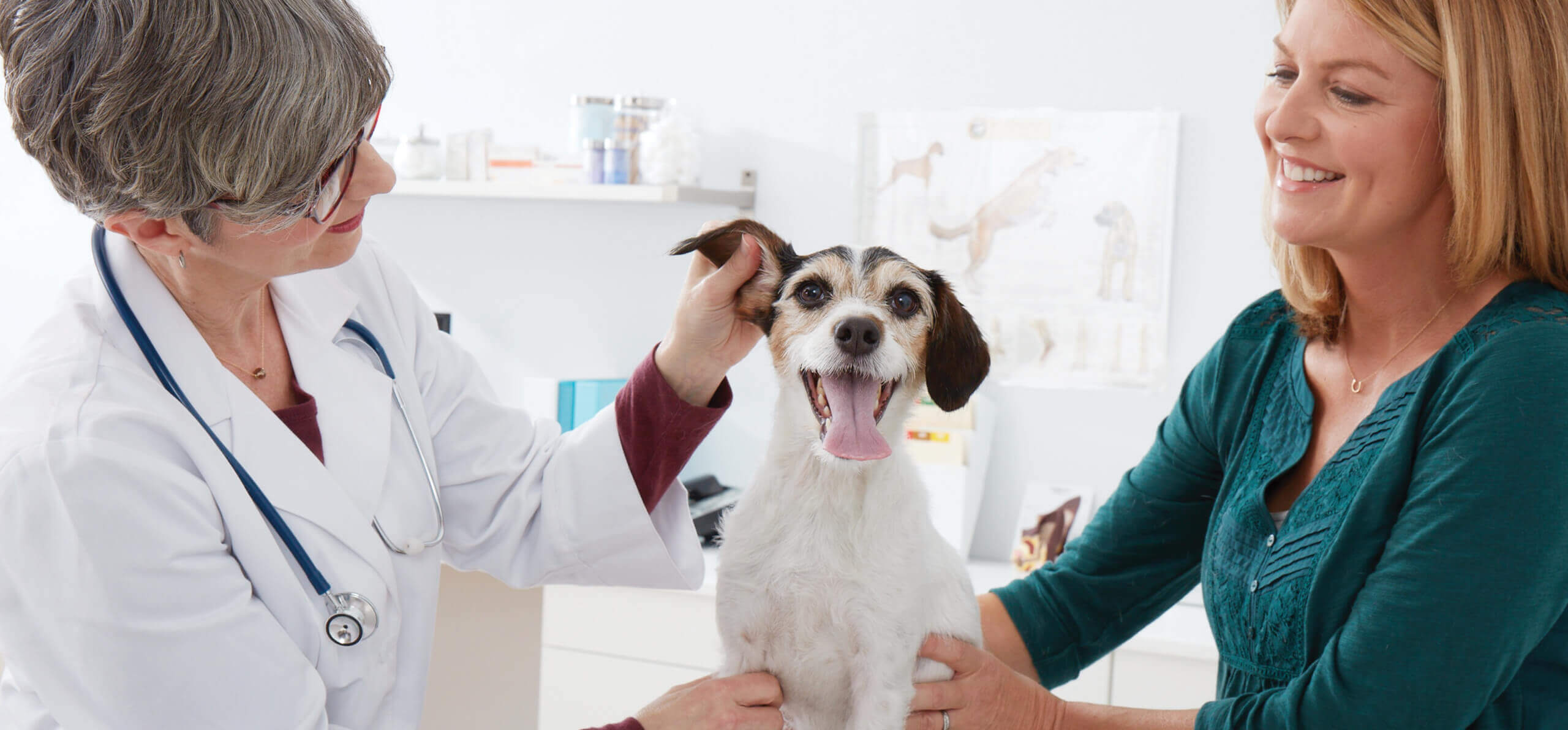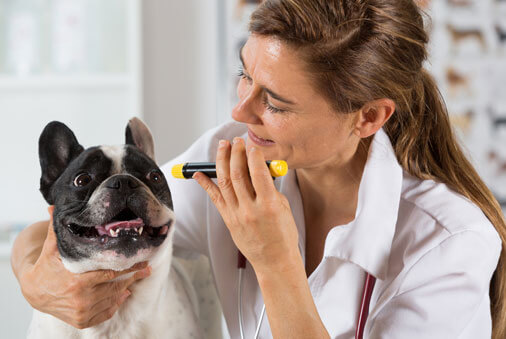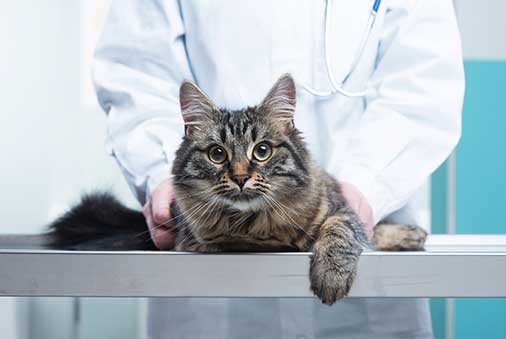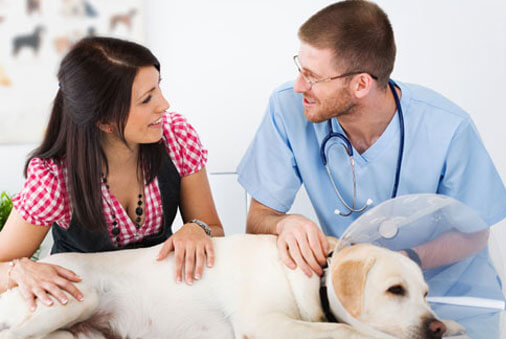Although we can’t prevent everything, we can learn how to spot common diseases and help protect our dogs early on.
Puppies and vaccinations
Of course, puppies are cute and cuddly but they’re also vulnerable. Fortunately, vaccinations are now able to prevent the two most common puppy ailments: parvovirus and distemper. Keep these vaccinations up to date to prevent your pup’s susceptibility.
Parvo
Puppies that are 12 weeks to three years old are the most vulnerable to this highly contagious disease, but all pets should be vaccinated at six to eight weeks old. The American Animal Hospital Association (AAHA) recommends puppies be vaccinated every three to four weeks between the ages of six to 16 weeks old.
If your pup hasn't been vaccinated and contracts parvo, contact your veterinarian immediately. Common signs of parvovirus include fever, vomiting and bloody diarrhea.
Distemper
Thankfully, distemper is another disease you can vaccinate against. Protocols vary, but the AAHA recommends vaccinating every three to four weeks when your puppy is between six to 16 weeks old.
Distemper initially appears as an upper-respiratory disease with sneezing and eye discharge, but it can progress into pneumonia or neurological problems if left untreated, so don’t assume these symptoms are a simple cold.
As always, call your veterinarian or bring your dog to an animal hospital if he’s showing signs of distemper. It’s crucial to catch this condition early because it can lie dormant and break out again later.
Adult dog conditions
Gum disease
Oral health care should start when your dog is just a pup. Professional cleanings from your veterinarian and at-home brushings will help prevent gum disease later in life.
Inflamed gums are usually the first sign that your dog’s teeth need some TLC. Inflammation can lead to gum disease if left unattended.
Bacteria-laden plaque and tartar on the teeth can spread under the gums, causing them to separate from the teeth and form pockets where infection can readily breed. Bone loss or a blood infection are two of the more serious symptoms if gum disease is left untreated.
Brush up on more dental health care tips here.
Kidney disease
Just like humans, dog's kidneys remove waste and prevent toxic buildup. When kidneys aren't performing correctly, it can be poisonous.
Kidney stones, a ruptured bladder or normal aging can cause kidney malfunction. If you see a drastic increase in water intake, frequent urination or uncharacteristic accidents in your home, take your dog to the veterinarian as soon as possible.
Senior dog ailments
Diabetes Mellitus
Diabetes is caused by the poor production or poor functioning of insulin, a hormone made by the pancreas. Insulin helps move glucose from the blood into the body’s cells where it’s used for energy.
Diabetes most commonly occurs in dogs that are at least eight or nine years old; it can be hereditary and is more common in females. Samoyeds, Cairn Terriers, Pugs, Toy Poodles and Miniature Schnauzers are breeds prone to diabetes, though any breed can be affected.
Watch for diabetes symptoms like frequent thirst, increased urination, weight loss, fatigue, irritability, recurring infections, blurred vision, and slow-healing cuts or bruises. If you notice any of these signs, it’s best to bring your dog to your veterinarian to rule out diabetes and other ailments.
Cancer
Sadly, cancer is the #1 disease-related killer of our furry family members. One loving way to help detect cancer is to feel for lumps as you pet your dog every day. Watch for weight changes, slowly healing sores and bleeding from the mouth, nose or ears as well. If caught early, cancer treatments can be successful so openly discuss the pros and cons with your veterinarian.
Learn more about pet cancer symptoms.
Providing your dog with proper nutrition, lots of exercise and routine wellness checks at the veterinarian will help keep him healthy.
Your precious pup can’t verbally tell you what’s wrong, but you can watch for physical distress signals. If your pooch just isn’t himself, don't hesitate to call your veterinarian.





